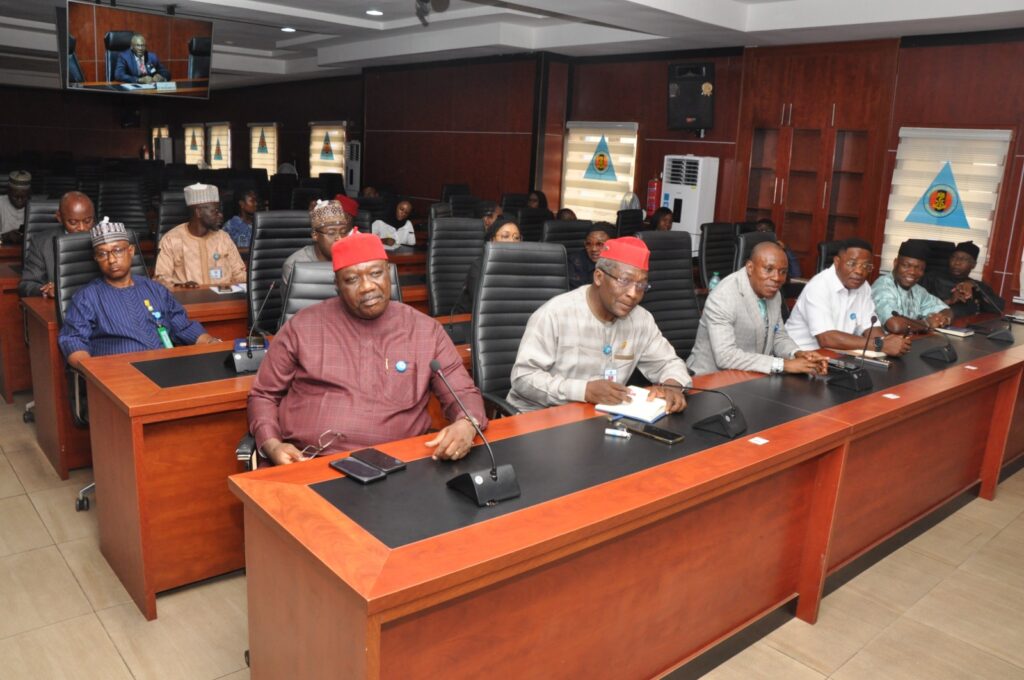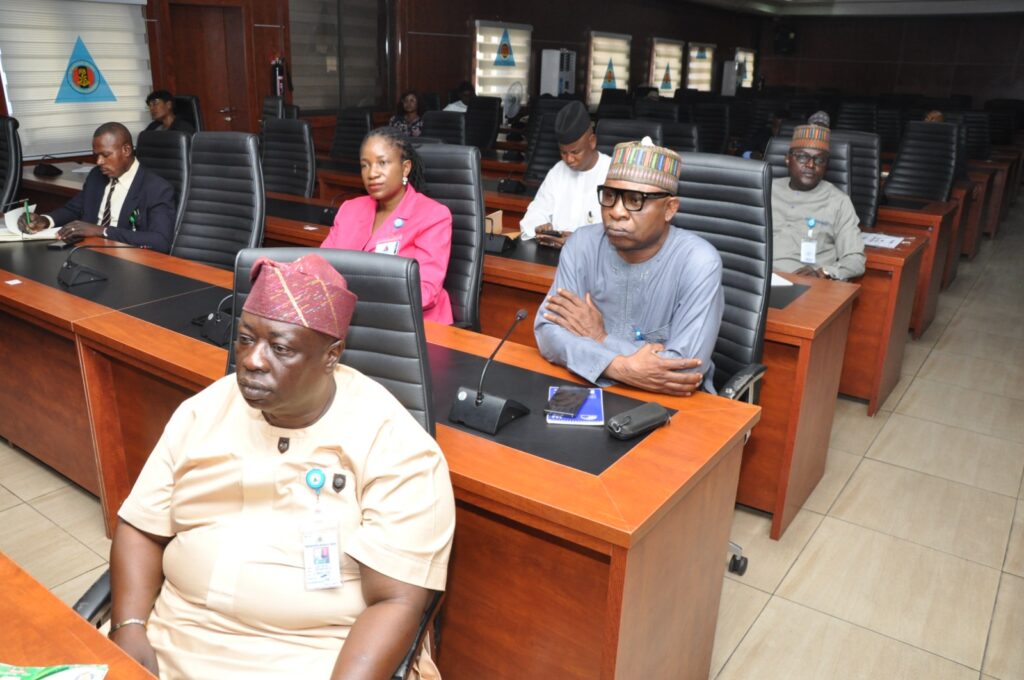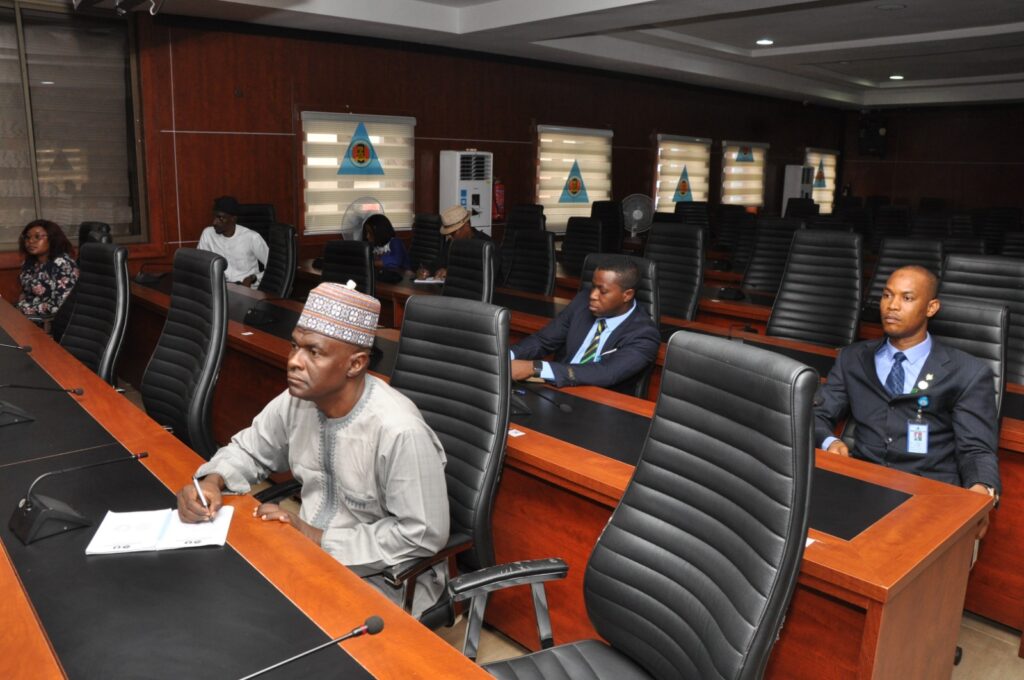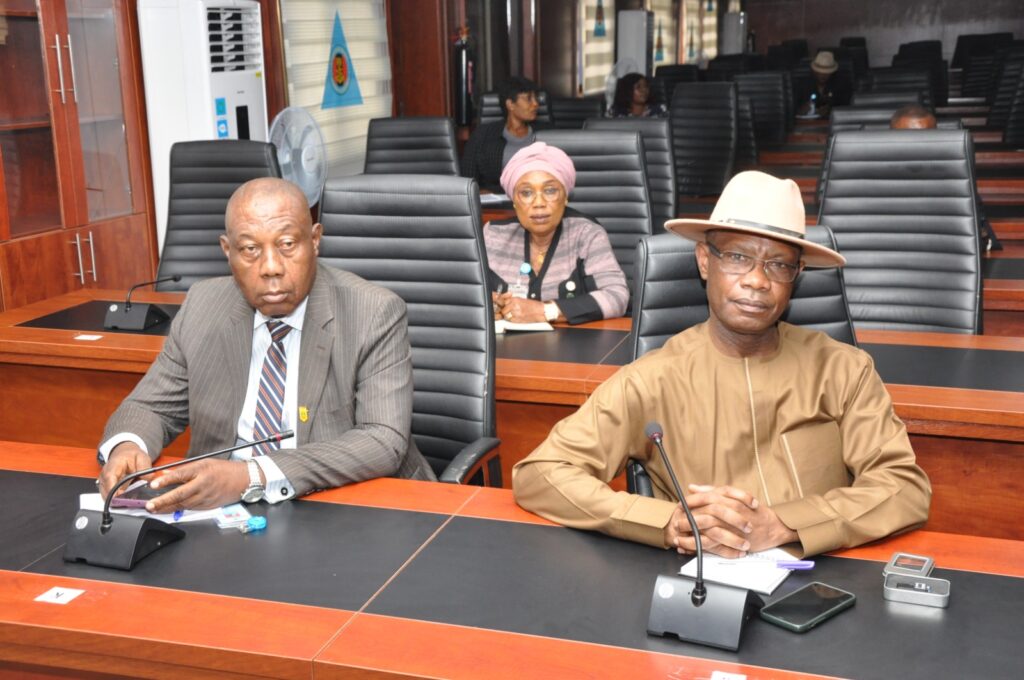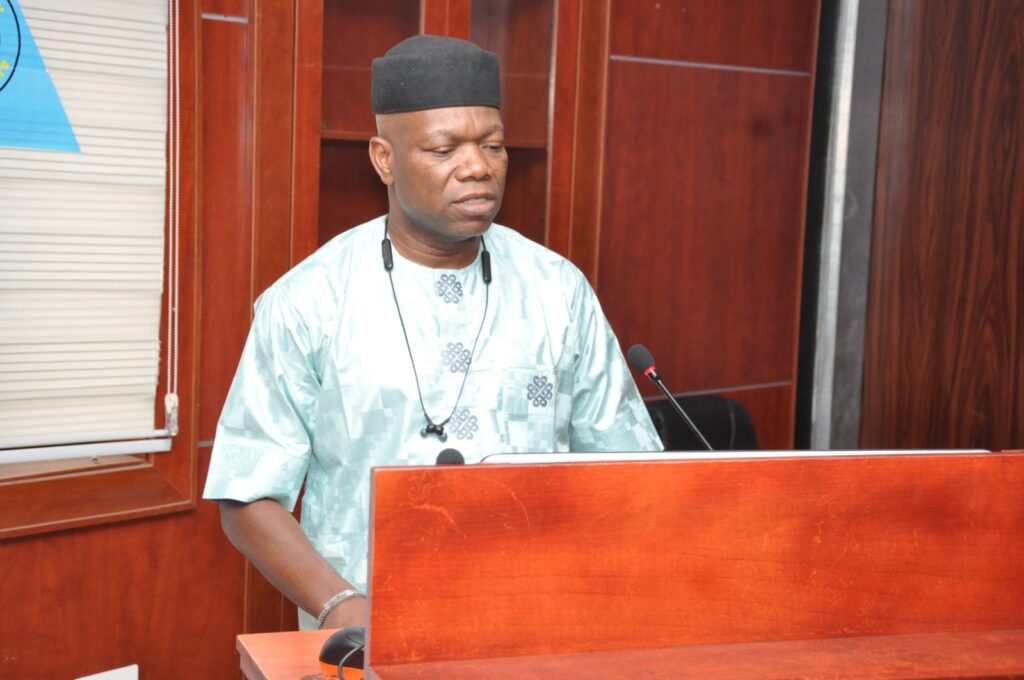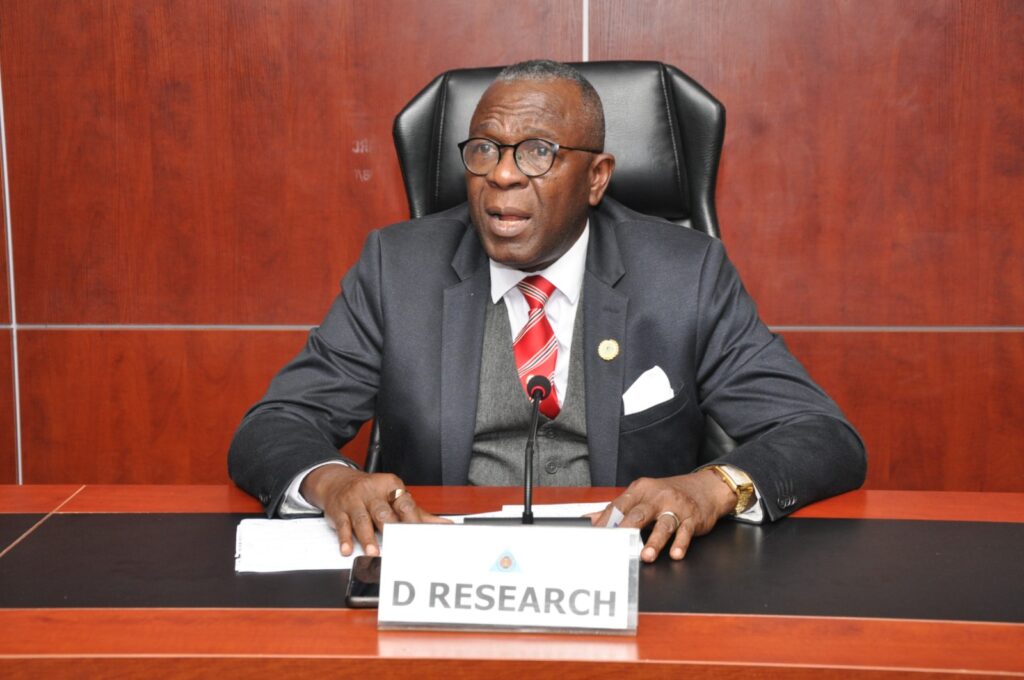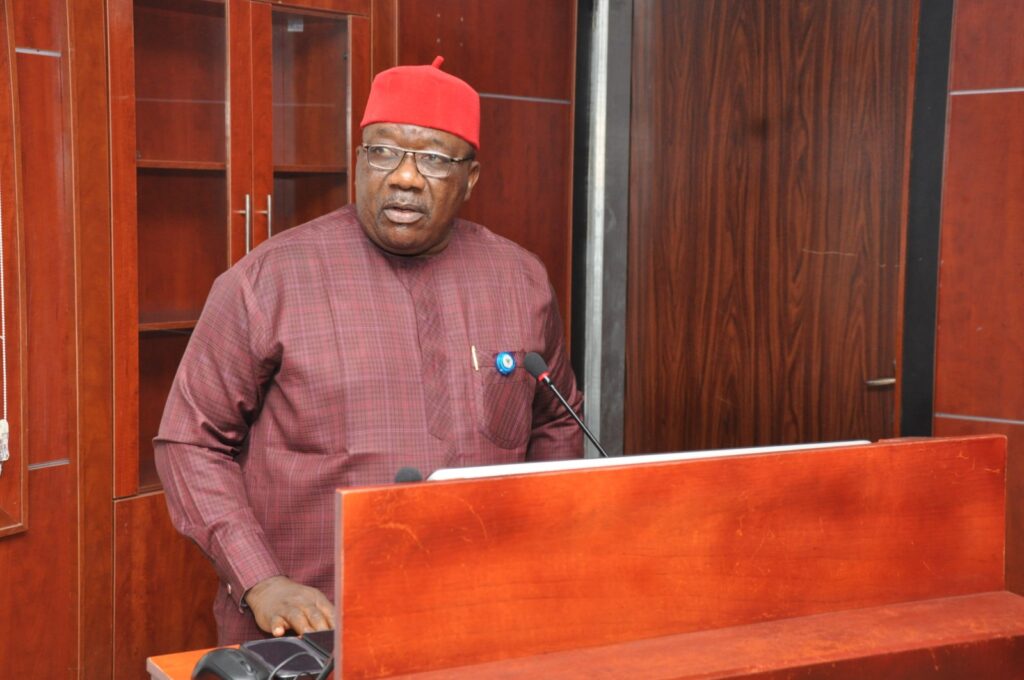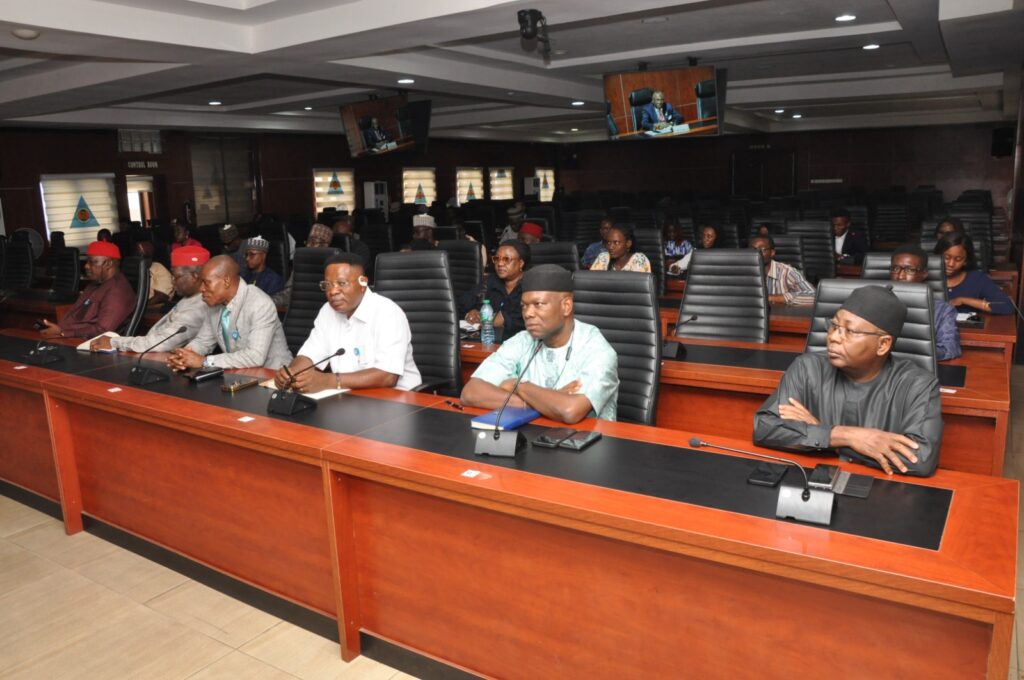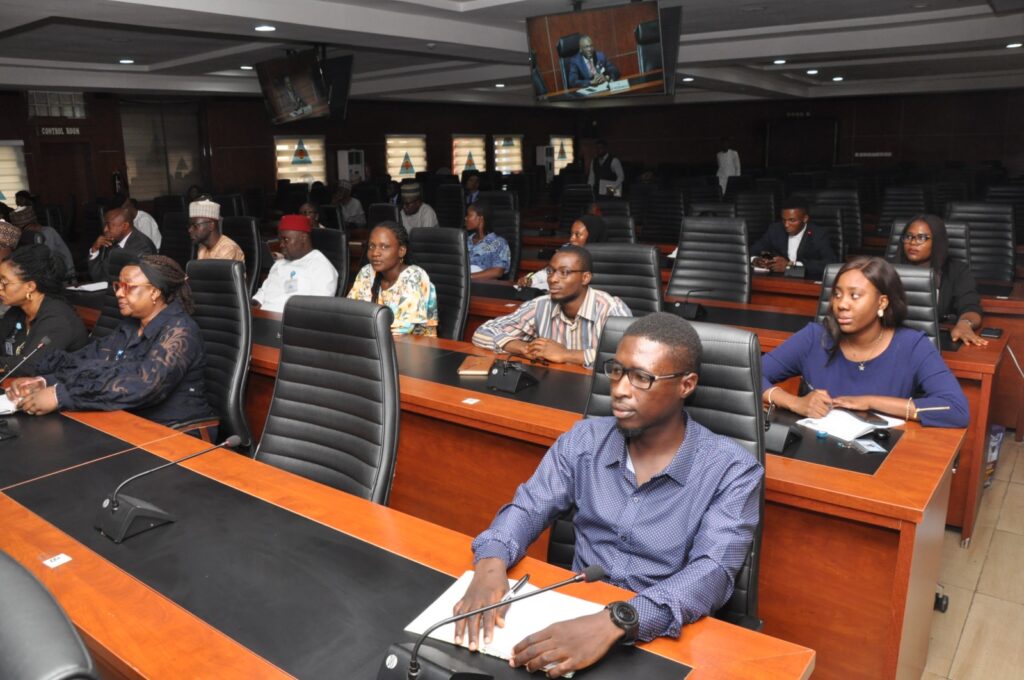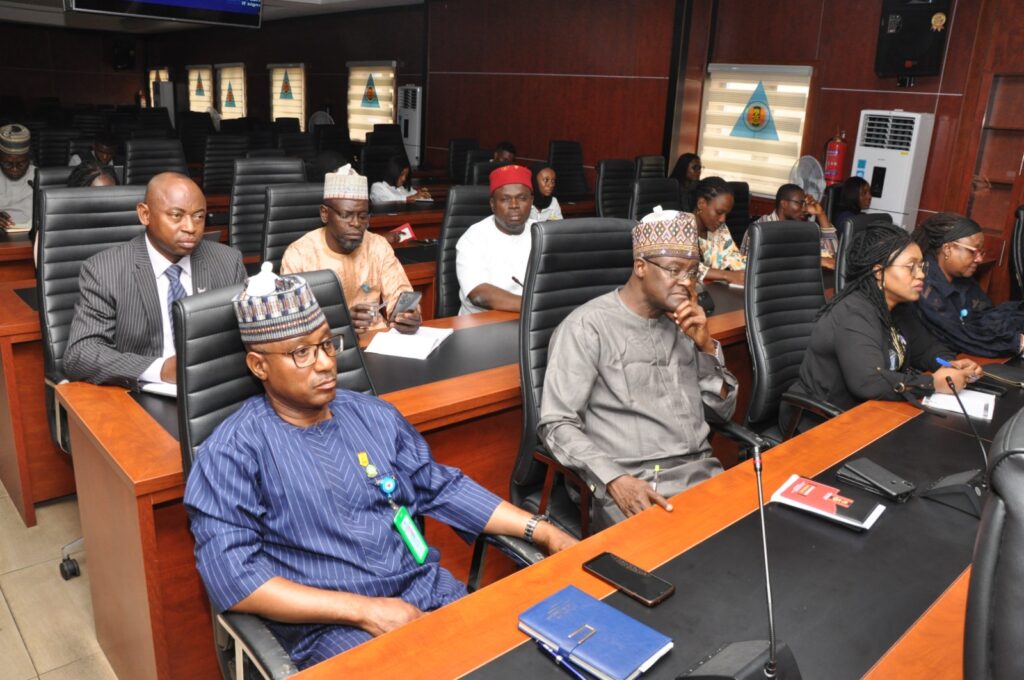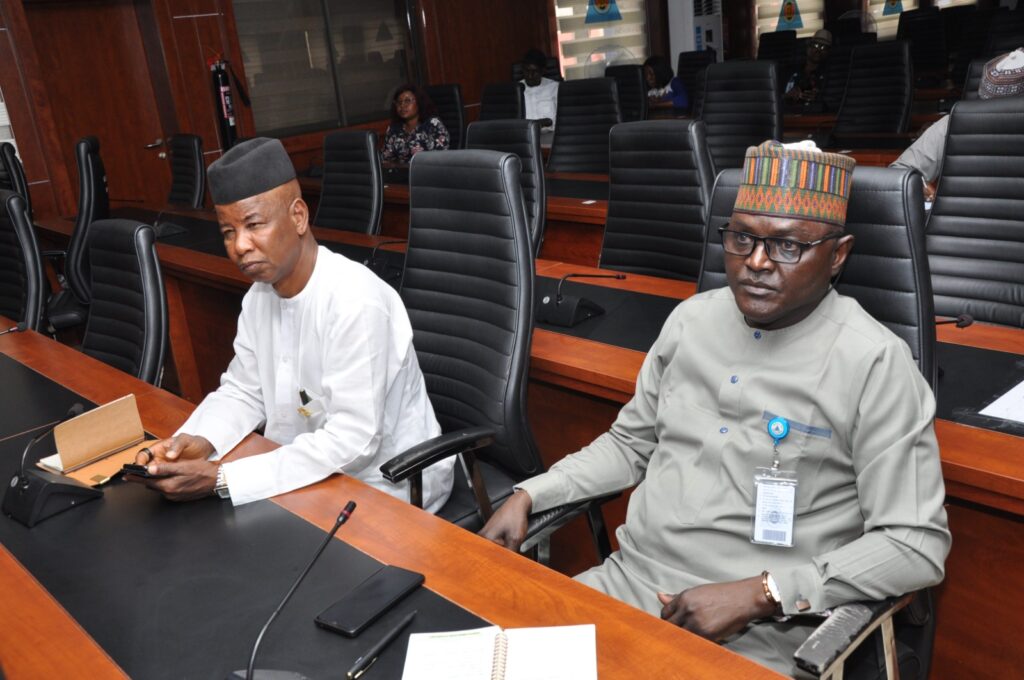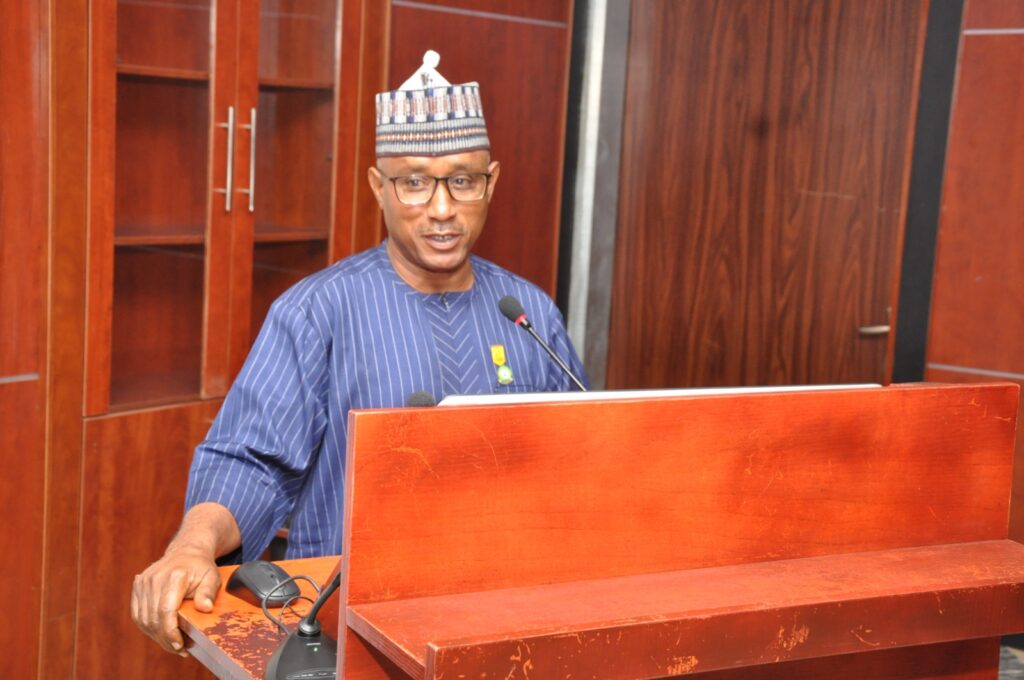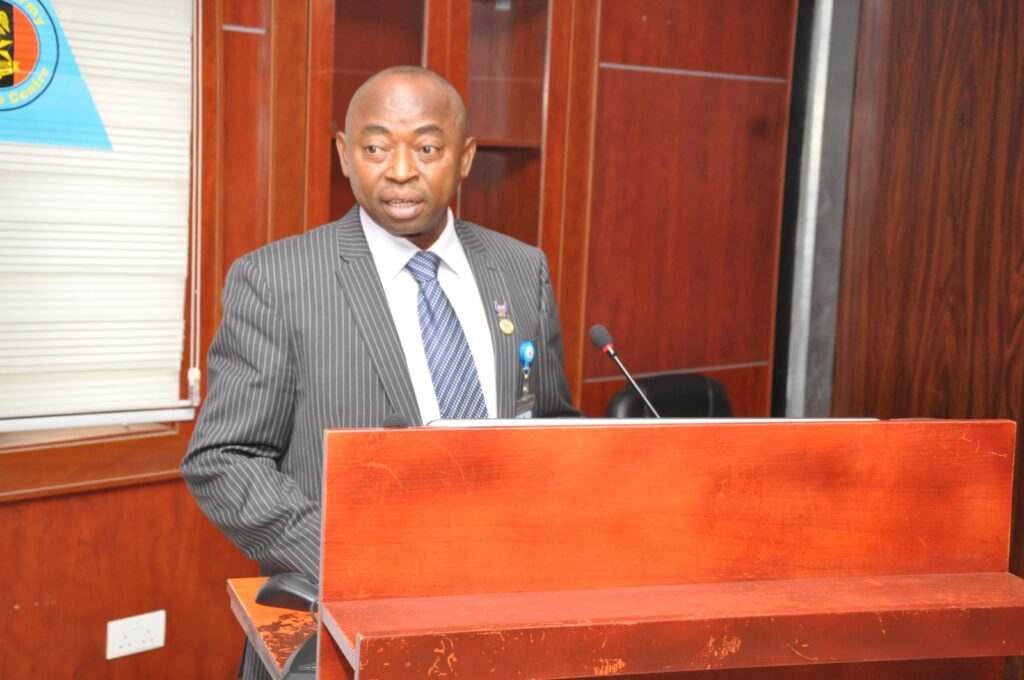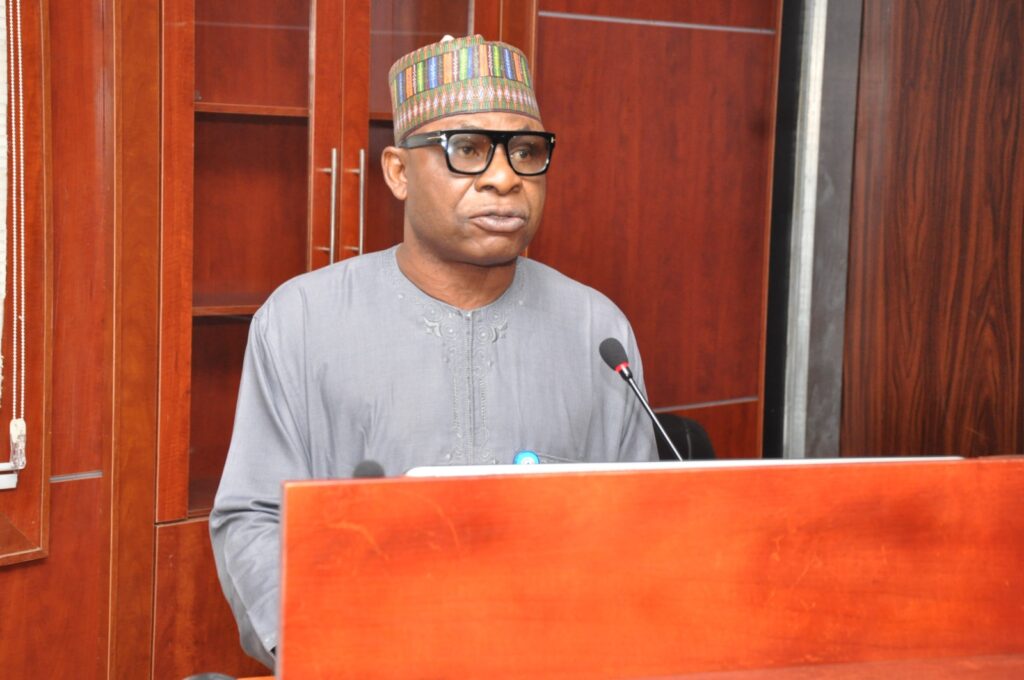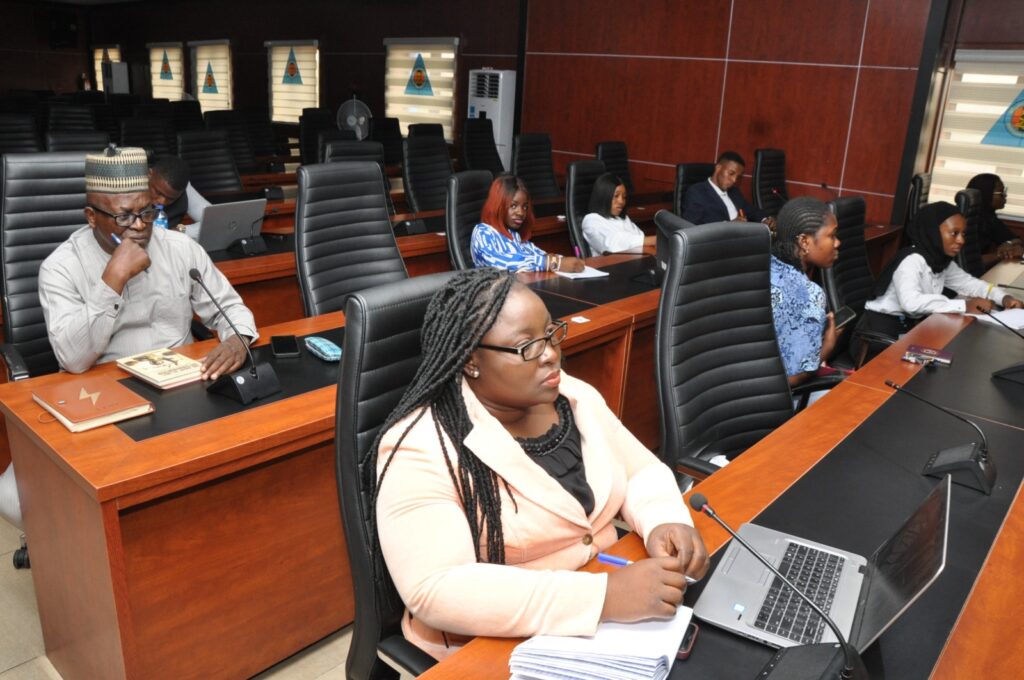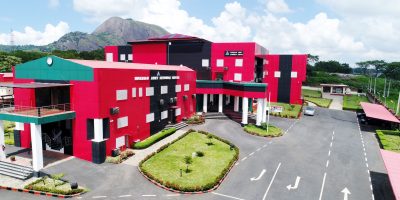Nigerian Army Resource Centre (NARC) Weekly Subject Experts’ Presentation was held at Hall C, TY Buratai Block, Abuja. There were five presentations made by the Subject Experts on West Africa, Gulf of Guinea, Central America, Nigeria, Western Europe and India Sub-continent.
The first presentation by Maj Gen OO Adeleke (Rtd) subject expert on West Africa and Gulf of Guinea, discussed on how Banana Exporters and Trade Unions Agree Joint Strategy to Negotiate Living Wages. Maura Maxwell reported on 8 March 2024 that Banana exporting companies and trade unions in Côte d’Ivoire have reached an historic agreement on living wages. The deal, which is the product of a three-year programme coordinated by Banana Link with the support of retailers and the Sustainable Trade Initiative IDH, is between the four major banana exporting companies of the country and a dozen trade unions, who between them represent the great majority of plantation and packhouse workers.
In his analysis and lessons for Nigeria, Gen OO Adeleke (Rtd) pointed out that, in 38 years (between 1981 and 2019) during which there had been about six national minimum wage reviews, minimum wage in Nigeria has not been achieved at the magnanimity of government and private sector employers. The FGN could therefore stick to periodic reviews of the minimum wage and not wait until the country is thrown into crises of labour union strikes before adjusting the minimum wage based on inflation rate in the nation.
He recommended that the Federal Government of Nigeria in its policy agenda should articulate and prioritize social welfare as a human right that must be protected. The FGN should work out all the economic, political and social implications of wage increase expediently enough before yielding to pay and carry out their oversight functions, particularly where the institutions involved have woefully failed as with the CBN in the last administration.
The second presentation by Brig Gen ED Idimah Subject Experts on Central America, centered his presentation on, Panama Suspends Activities of Medecins San Frontiers at Darien Gap. Panama on 11 March 2024, forced Médecins Sans Frontières (MSF) to suspend assistance to migrants arriving through the Darién Gap amid a public clash over a spike in sexual violence on the notorious jungle passage – the only land route to the United States from South America. The lawless stretch of rainforest between Colombia and Panama has seen a massive increase in migration in recent years, from a few thousand people less than a decade ago to more than half a million last year.
In his analysis and lessons for Nigeria, General Idimah noted that, the situation in Panama and Nigeria highlights the potential implications for national security when NGOs fail to fulfill their roles and responsibilities. The alleged encouragement of illegal migration and the diversion of resources meant for vulnerable populations can lead to destabilization and inadequate humanitarian response, and this can create an environment conducive to extremist activities and further marginalization of affected communities. It is crucial for governments, NGOs, and international bodies to work together to address these challenges, promote transparency, and uphold human rights to ensure the safety and well-being of vulnerable populations and maintain national security.
He recommended that Federal Government of Nigeria should compel NGOs operating in the North East and other conflict areas in Nigeria to disclose their sources of funding and also should enhance oversight and regulations of NGOs operating in conflict areas to ensure they are fulfilling their mandate. FGN should expel NGOs found to be aiding and abetting activities of terrorists and compel NGOs to publish their financial transactions periodically in line with Nigerian extant laws.
The third presenter Brig Gen WD Nasiru Subject Expert on Indian Sub – Continent, discussed India First Successful Flight Test of Agni-V Inter-Continental Ballistic Missile Armed With Multiple Independently Targetable Re-Entry Vehicle (MIRVs). Indian Prime Minister Narendra Modi praises the test and congratulated the DRDO for indigenously developing Agni-V ICBM. He announced on his social network X (Twitter). Stating that “we are proud of the Defence Research and Development Organization scientists for the first flight test of the Agni-V missile of our own design.”
In his analysis and lessons for Nigeria, Brig Gen Nasiru pointed out that, India has demonstrated the importance of long-term strategic planning and investment in STI for its defence industry. Nigeria could benefit from similar forward-thinking approaches using available institutional frameworks such as DICON, DDRD, NDA, NAUB, AFIT and DSA. Federal Government of Nigeria could invests significantly in STI, research and development (R&D) for its defence sector, fostering innovations and indigenous capabilities. Similarly, Nigeria could focus on enhancing its R&D infrastructure to develop advanced defence technologies domestically instead of depending on the importation of military hardware abroad. Additionally, Nigeria can learn to effectively collaborate with the private sector as India has successfully engaged the private sector in defence production, leveraging their expertise and resources.
He recommended that FGN should identify key areas of specialization within the defence industry where Nigeria can immediately excel, whether in manufacturing specific types of equipment, providing maintenance services, or producing components for larger systems. FGN should review relevant policies on manufacturing, licensing, export controls, and intellectual property protection of defence related innovations to encourage investment and ensure compliance with international standards. FGN should leverage partnerships with other countries, similar to the ongoing agreement with China in AJAKUTA in order to access technology, expertise, and potential markets for Nigerian defence products.
The fourth presenter Brig Gen CC Ogbu Subject Expert on Nigeria, focused on Fairness in the Implementation of Oronsaye Report. On Friday, 15 March, 2024, Vanguard Newspaper reported that “the Nigeria Civil Service Union (NCSU) has appealed to the Federal Government to be fair in the implementation of the Oronsaye Report and ensure that workers do not lose their jobs.” According to Vanguard, Mr Asogwa Gupada, President of the Union, FCT chapter, appealed to the union’s 58th Federal Executive Council (FEC) meeting in Abuja.
In his analysis and lessons for Nigeria, Brig Gen Ogbu stressed that, the recent directive to fully implement the Oronsaye report raises a sense of hope and optimism. The Oronsaye report recommends the scrapping and merging of 263 out of the then-existing 541 government agencies, aiming to streamline operations, eliminate redundancies, and save a substantial sum of N862 billion between 2012 and 2015. On the other hand, the House of Representatives, on Thursday, 29 February, 2024 described the 2012 Steve Oronsaye Report as outdated and called on President Bola Tinubu to thoroughly review it before going ahead to implement the same.
He recommended that NARC should advise AHQ to urgently set up a committee to examine the drawbacks of merging NAUB with NDA and make a case accordingly. NARC should advise the FG through the Office of the SGF to review the 2012 Oronsaye Panel report and other related documents in line with prevailing circumstances before implementation. NARC should advise the FGN to grant ample time and apply fairness in the implementation of the Oronsaye report to forestall the negative effects of merger.
The fifth presentation by Maj Gen GU Chibuisi subject expert on Western Europe, centered his presentation on, Man Found Guilty of Murdering Matthew Daulb in Ormskirk. On 13 March 24, BBC reported on a murder case involving Henry Houghton, who was found guilty following the incident that took place on 29 Jul 23, where a Nineteen-year-old Matthew Daulby was found with stab injuries. Despite the best efforts of the emergency services, Matthew sadly died later in the hospital.
In his analysis and lessons for Nigeria, Maj Gen GU Chibuisi pointed out that, moral decadence poses significant security implications for Nigeria, affecting various aspects of society, including social cohesion, crime, economic development, youth radicalization, and public health. Addressing these challenges requires a comprehensive approach that will address the root causes of moral decay, strengthen institutions, promote ethical leadership, and fosters inclusive development. “By prioritizing moral regeneration and upholding ethical standards, Nigeria can build a more resilient and secured society for future generations”.
He recommended that, Federal Government of Nigeria should launch nationwide campaigns to promote ethical behaviour and raise awareness about the consequences of moral decadence and boost opportunities for youth engagement and empowerment through skill-building programs, employment initiatives and recreational activities. The National Orientation Agency should collaborate with Fedaral and State Ministries of Education to review and enhance moral and ethics education programs in schools, to instil values of integrity, empathy, and civic responsibility from an early age.
